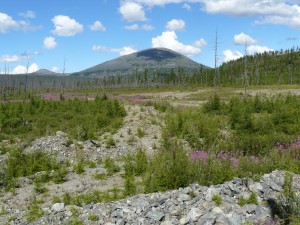The recent Earth Observation meeting of the EU-Russia Space Dialogue was held in Moscow on 15th of May. The meeting was organized by ROSCOSMOS and took place at the Keldysh Research Center. The meeting aimed at the continuation and review of ongoing and future FP7 acivities and to discuss the potential of common GEO activities and satellite data exchenge including future Sentinel data. While presenting key FP7 projects in the framework of the Space Dialogue, representatives of EUMETSAT and EEA joined the meeting in order to present their current collaboration framework.
The presentation of the ZAPÁS project was well recieved, commented and appreciated from Russian and EU sides. ZAPÁS remains a key component of the joint cooperation between Russia and the European Union. One of the conclusions of the recent discussions of the Space Dialogue is that the ongoing FP7 projects in the field of earth observation for crop monitoring (MOCCCASIN) and forest resource assessment (ZAPÁS) are important mechanisms to bring the ongoing political discussions into action. Both sides of the Space Dialogue recommended to continue the current work and find ways for future funding.

